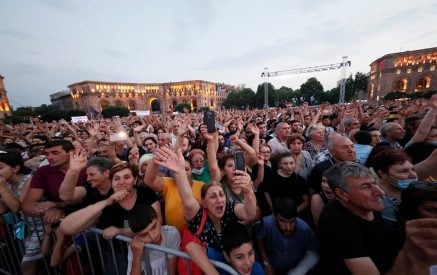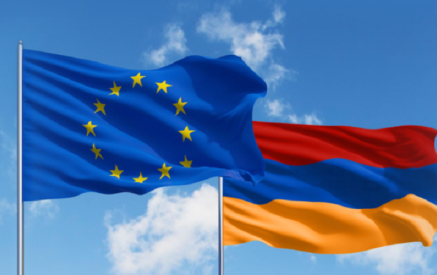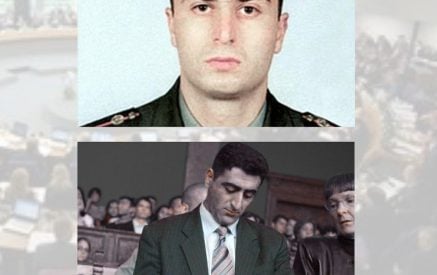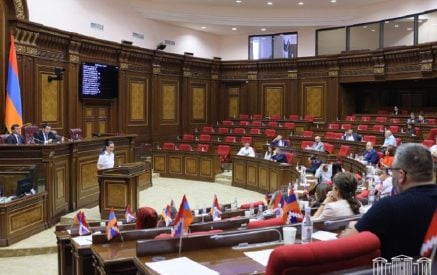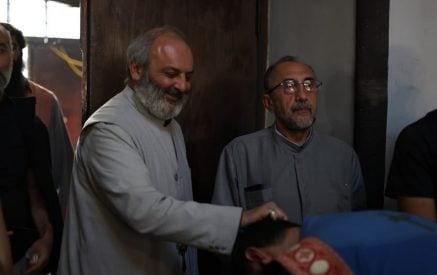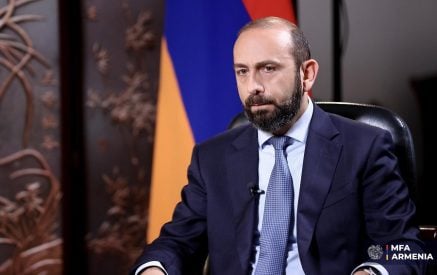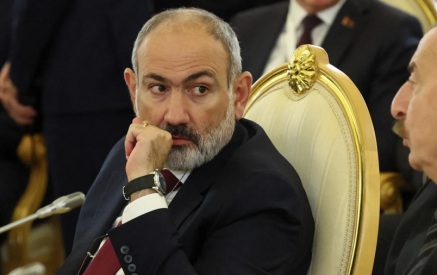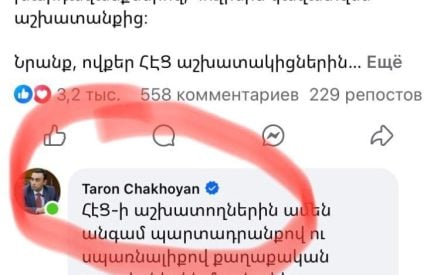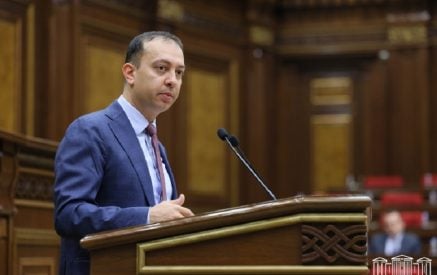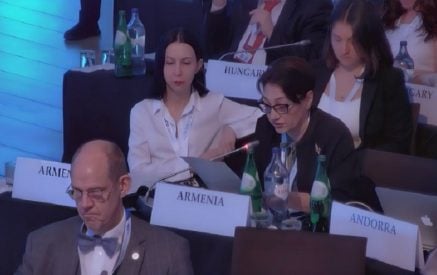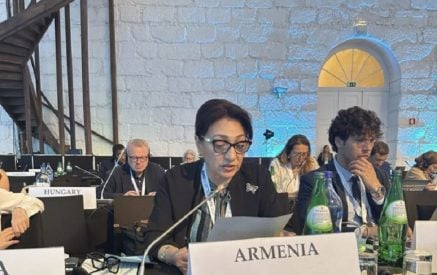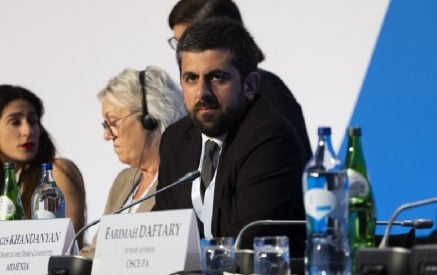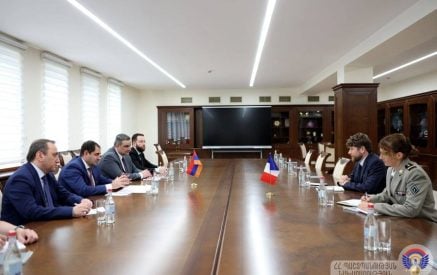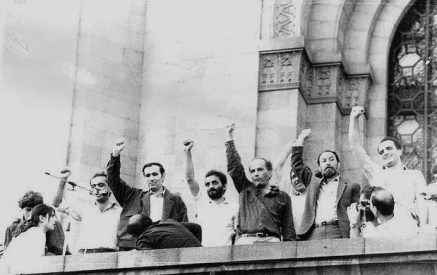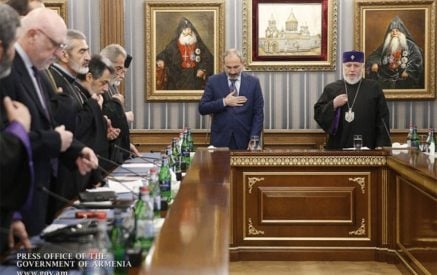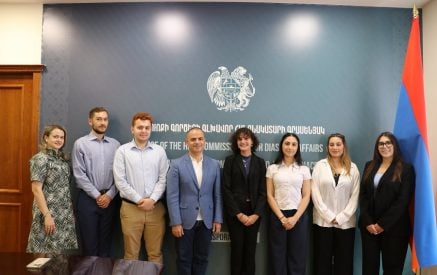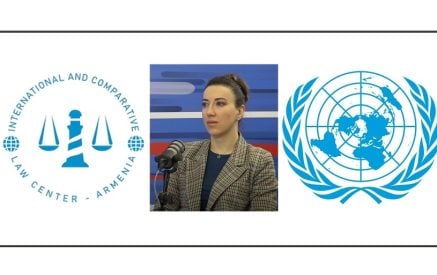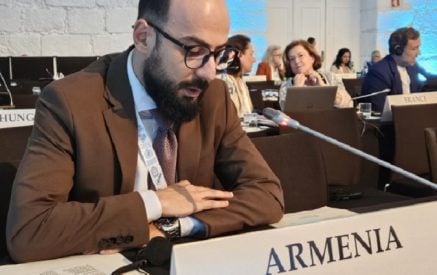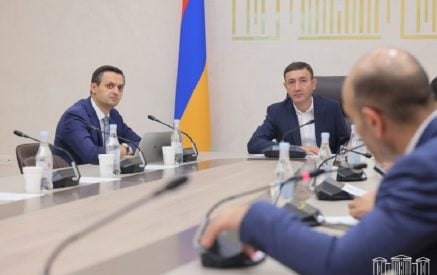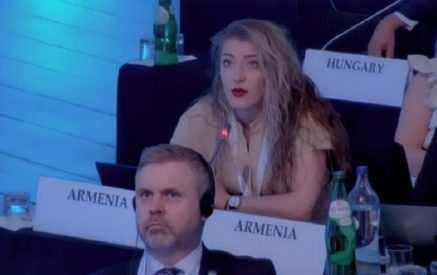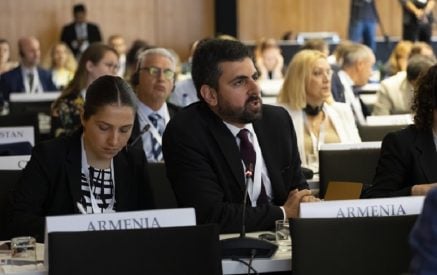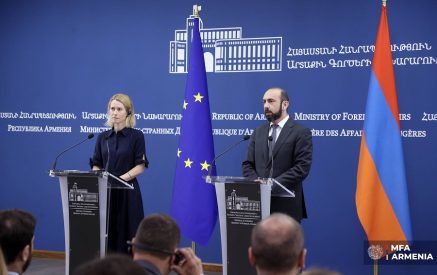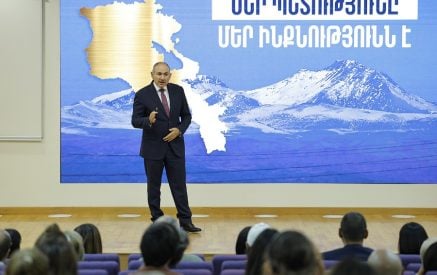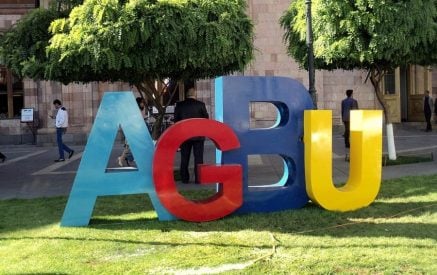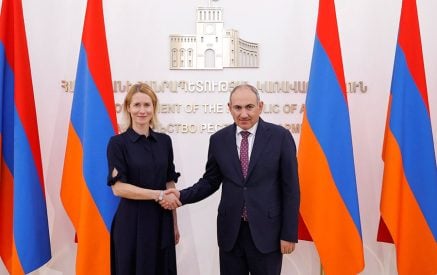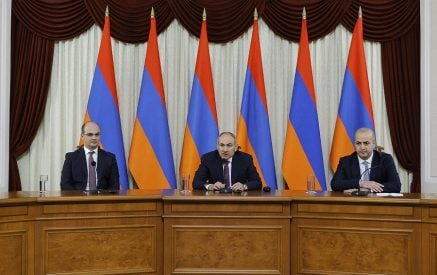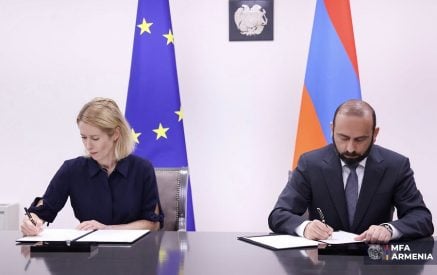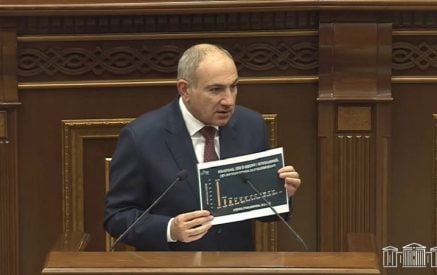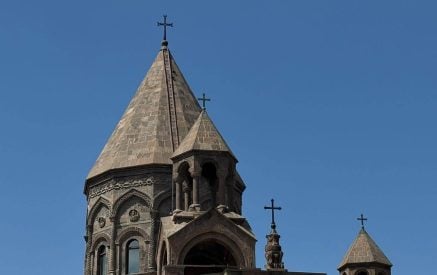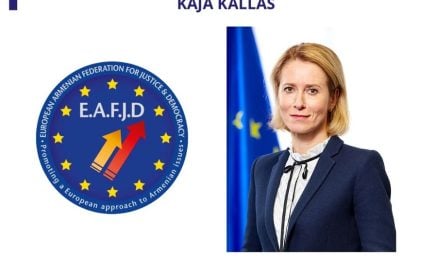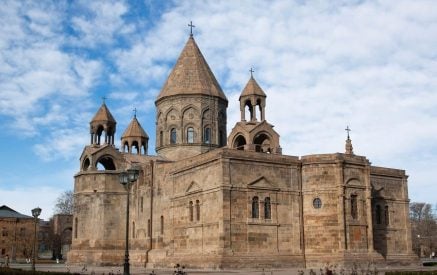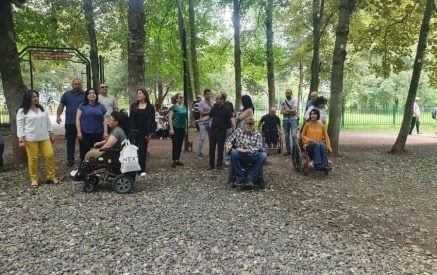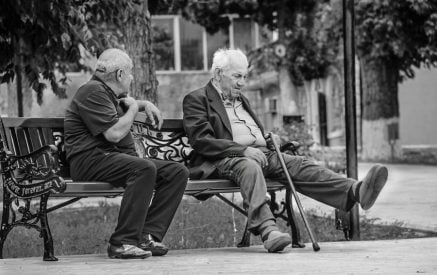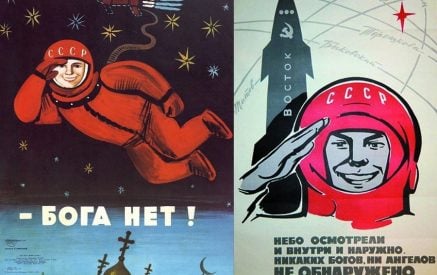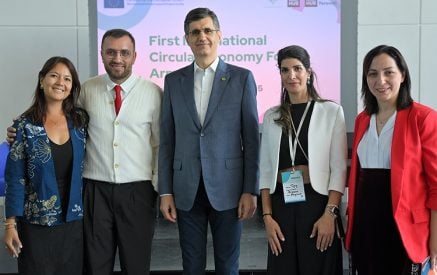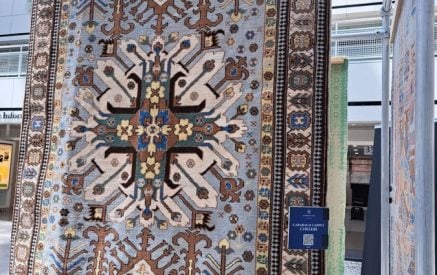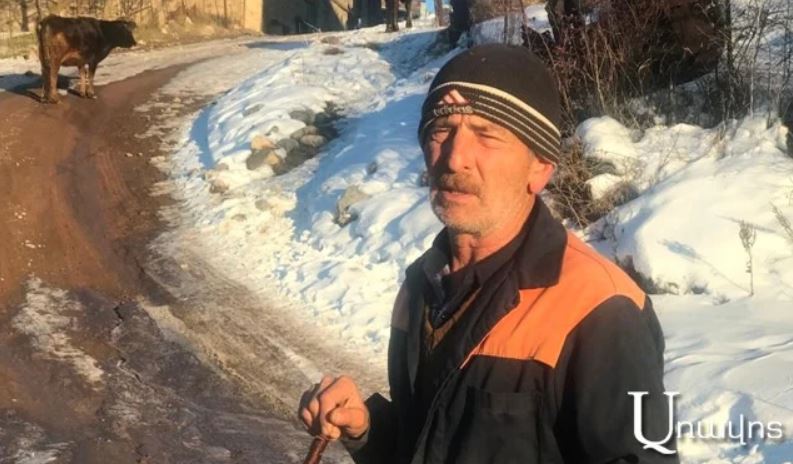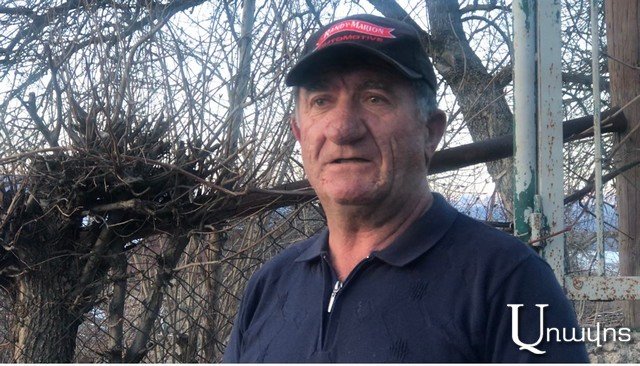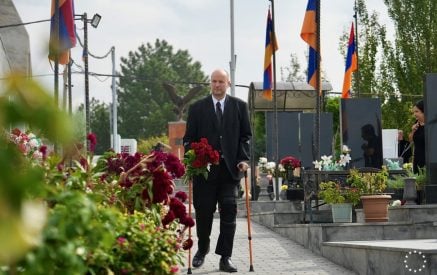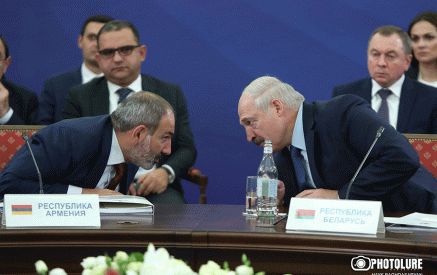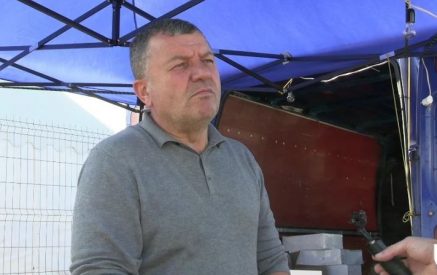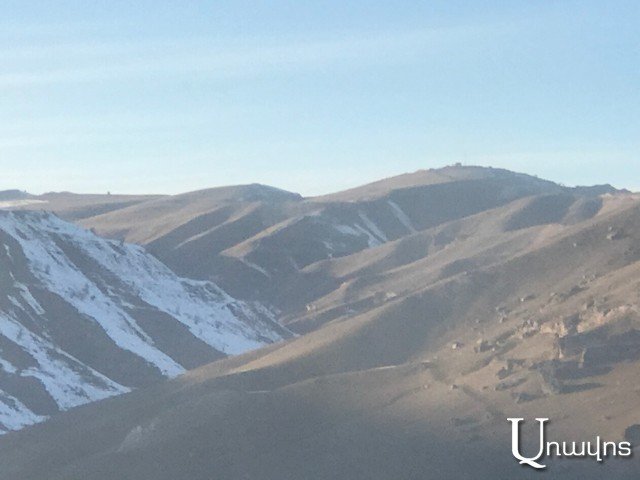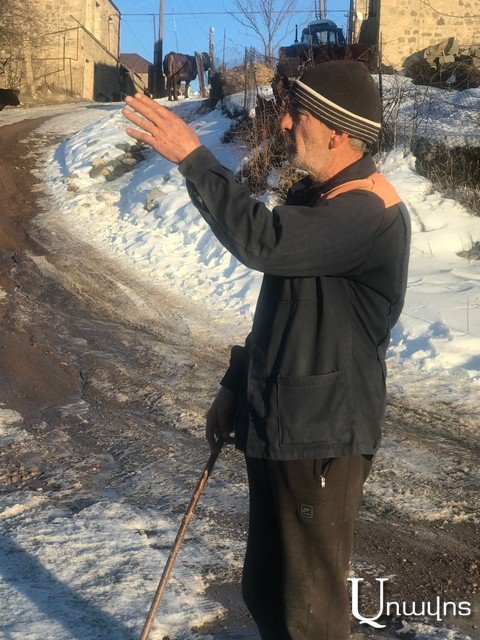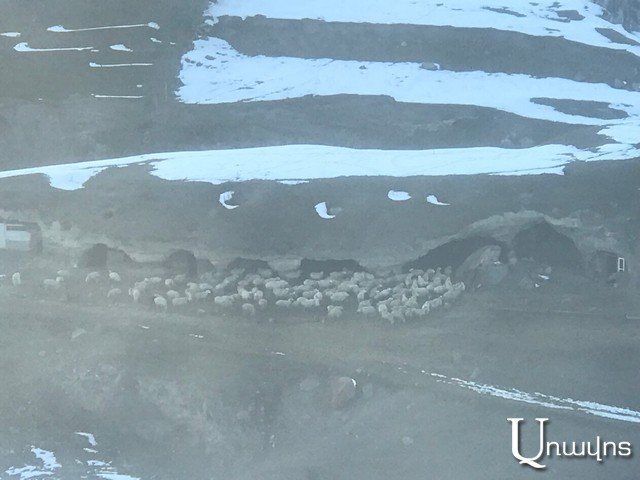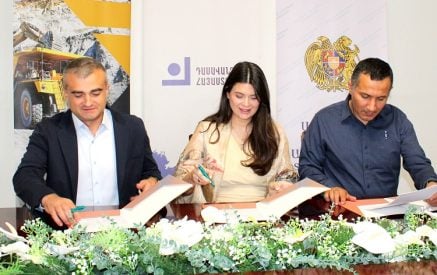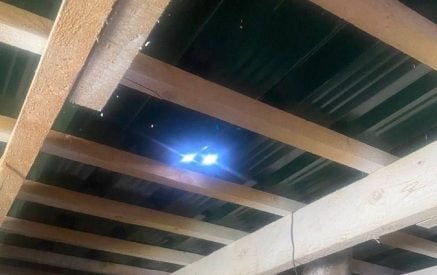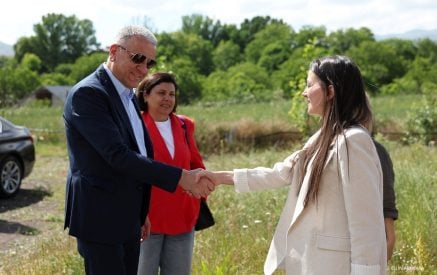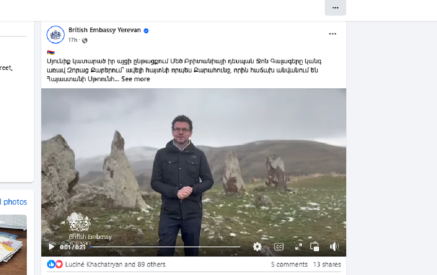A resident of Tegh community is not against the “era of peace”
We arrived in the community at a time when people were accompanying their animals to the barns. During this season, there is green grass on the slopes. The locals take out the animals, feed them, water them, and take care of the barns. After the 44-Day War, Tegh, which has become a border village, is no exception: it lost thousands of livestock. Some were slaughtered and sold, and others were handed over alive. In other words, cattle breeding- which is a priority for the Armenian government, and in order to have a large share in the GDP of agriculture, the government promises a thousand and one privileges to the farmer and even builds even smart cattle barns for them with preferential credit terms- seems to have “died” in the Tegh village.
According to the locals, there is no family that has not reduced the number of cattle they have. They say that the village had only about 20,000 sheep, but now there are probably only 5,000 left. The same goes for cattle. Aram Snetsuts says that spring has come, and they do not know how they will keep what they have. They don’t have either pastures or fodders. Aram points to the pastures of the village and says, “What can be seen from here is all that is left. Everything around that belongs to them. We do not have a pasture.” After the change of borders as a result of the war, the locals have another problem. Some are unable to extract wood from their own gardens near border posts along the way.
Read also
“They say you can not, you have no right. We also heat the house with wood. I have no right to take wood from my 22-year-old garden and burn it,” says Aram. I asked him if they use the social assistance provided to the border communities, and what does it give to the villagers; does the discount on electricity, gas, water and other bills make the villager’s life a little easier? “Yes, it is good that we at least have that. You go to pay for utilities, the bills are much lower, so if it continues, it will be good. But we paid in full in one month, because they did not offer a discount,” says Aram. He is joined by his wife, Susanna, who says that the house is heated with wood anyway, and it would be good if the help was in the form of wood, as most of the village uses a wood-burning stove and there is no possibility to bring wood from the forests. The Snetsunts family has many members. They have 5 children: 4 daughters, and their son is a minor. “Have you noticed that there were people leaving the village after the war?”
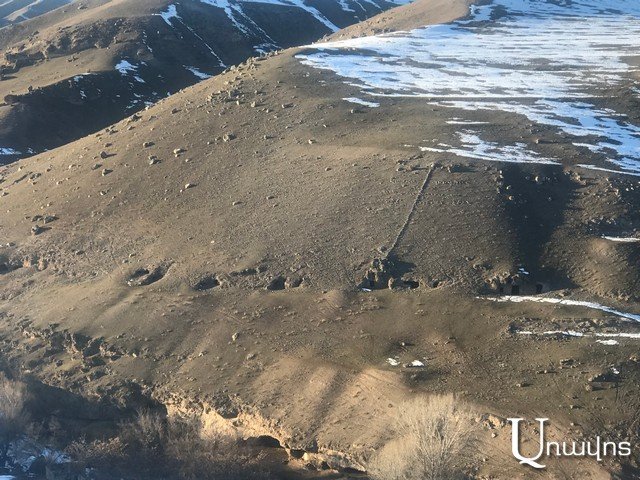
In response to my question, Aram says that there is no emigration from the village, and notes that he also does not have the desire to live anywhere else. “There are many places to go, but I am not one to leave. I have been cultivating a garden for 22 years, I have taken a loan, I have kept animals, it is true that I sold them all after the war, but I do not intend to leave the village.” Susanna came from Karahunj to Tegh as a bride and has been living here for 30 years. She sees the future of both herself and her children here.
Hrant Dallakyan is not against the intention of the authorities to open an era of peace. He says that in those years he worked as a mechanic, traveled with the Azerbaijanis, often went to work for them, received money, and came back. The “Turk” came and shopped in a local store, and Armenians went and used their shops. Even now he is sure that the two peoples can find common ground with each other. He says that he does not see any danger when the Azerbaijanis appear at the top of the mountains of Tegh village, he is convinced that standing there, the “Turk” is more afraid.
“We know every nook and cranny, we could secretly go and occupy those ‘posts,’ but they are unknown places for the Turks. They came from Baku to stand in these fields.” Hrant thinks that if we do not harm them, they will not harm us either. “There were people who had their sheep taken from them two or three times. The Turks warned them not to go there. But they went, and the Turks took them. When a thief comes and enters your house, what will you do? A few days ago, a sheep was taken from our village- my friend’s sheep. He went to his post, and they took it. Now if the Turk comes here, wouldn’t I take them. It is clear that I will.”
Hrant’s three sons took part in the last war. One son was wounded in Hadrut, and both sons are in the military. He says he also took part in the first Artsakh war. According to Hrant Dallakyan, although the distance between the Azerbaijani and Armenian bases in the Tegh community is about 5 meters, there are almost no uncultivated lands here. “There is no uncultivated land in our village. In Kornidzor, which is right by the border, people are still cultivating their fields.”
The Tegh community, which was enlarged in 2016, uniting 7 settlements of Goris region, has 2,234 inhabitants. The village is on the Goris-Stepanakert highway, 12 kilometers from the city of Goris.
Lusine BUDAGHYAN


